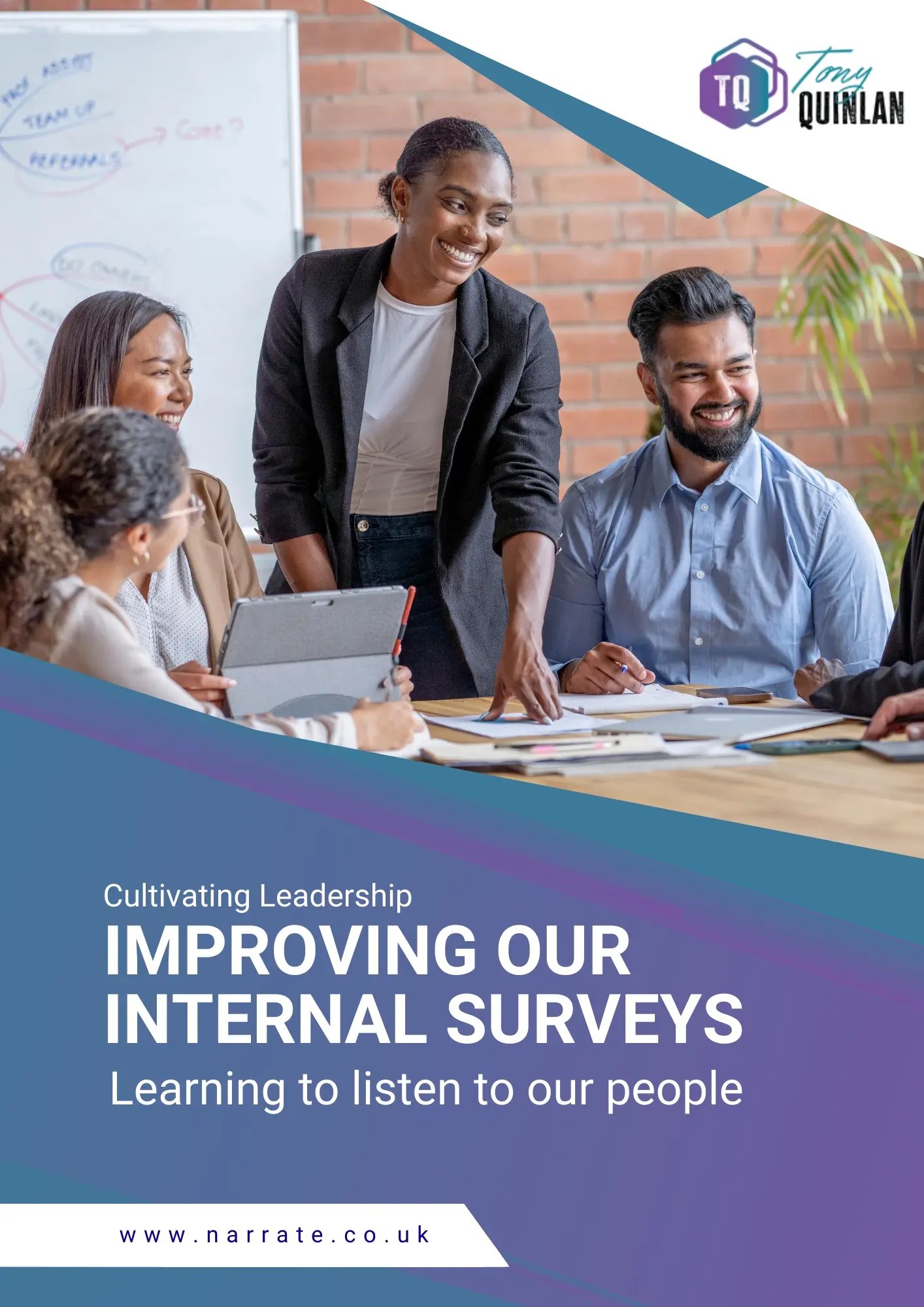I suppose you’ve been here before. You’re looking at yet another change management framework, wondering why your carefully considered plans keep stumbling over the awkward realities of organisational life. It’s frustrating. Rather like trying to herd cats. Except the cats all have MBAs and strong opinions about the strategic direction of the litter tray.
The thing is, your organisation isn't quite the well-oiled machine one might hope for. It's more akin to a somewhat unruly garden - complex, interconnected, and occasionally a bit prickly. And if we're honest, most of our management tools were designed for tinkering with machines, not cultivating ecosystems.

Complexity training is about preparing for the 21st century's challenges. Just as efficiency and scientific management approaches were the big ideas for the 20th century, complexity is shaping up to be the crucial paradigm for our era.
This is where complexity training comes in. I’m not talking about giving your people a new set of rigid processes to follow, but practical tools and techniques to help them actually manage and influence what’s happening in your complex, ever-shifting organisation. And I'm not just theorising here - I've been training people in this material for over a decade, on every continent except Antarctica. (The penguins haven't called yet, but I remain hopeful.)
Think of it as giving your people a more adaptable toolkit. I'm teaching them to navigate the obstacles, adjust their approach on the go, and perhaps even spot a few unexpected opportunities along the way.
What Is Complexity Training?
Well, it's about equipping your folks to:
![]() Use the Cynefin framework: First things first, they'll learn to distinguish between simple, complicated, complex, and chaotic situations. Because not every problem is a complex one, and knowing which is which is half the battle.
Use the Cynefin framework: First things first, they'll learn to distinguish between simple, complicated, complex, and chaotic situations. Because not every problem is a complex one, and knowing which is which is half the battle.
![]() Spot patterns in the chaos: For those issues that are complex, I'll show them how to identify emerging trends and potential leverage points that others might miss. How to bring some influential things out of the shadows and into the light where people can explore them safely and decide what to do.
Spot patterns in the chaos: For those issues that are complex, I'll show them how to identify emerging trends and potential leverage points that others might miss. How to bring some influential things out of the shadows and into the light where people can explore them safely and decide what to do.
![]() Run safe-to-fail experiments: Instead of big, risky change programs, they'll learn to design small tests that yield quick insights without breaking the bank (or the organisation). I’m thinking about multiple small experiments, rapid learning, and evolution. It's a bit like organisational natural selection, but rather less dramatic and with fewer extinct species involved
Run safe-to-fail experiments: Instead of big, risky change programs, they'll learn to design small tests that yield quick insights without breaking the bank (or the organisation). I’m thinking about multiple small experiments, rapid learning, and evolution. It's a bit like organisational natural selection, but rather less dramatic and with fewer extinct species involved
![]() Influence indirectly: In complex systems, a frontal assault rarely works. I'll teach them subtle ways to nudge the system in more promising directions. And detecting what directions might not be possible right now – and which ones might be more susceptible to a little nudge.
Influence indirectly: In complex systems, a frontal assault rarely works. I'll teach them subtle ways to nudge the system in more promising directions. And detecting what directions might not be possible right now – and which ones might be more susceptible to a little nudge.
![]() Harness emergence: Complex systems have a tendency to produce unexpected outcomes. We call it emergence – and it can feel uncomfortable. It also doesn’t mean a hands-off, hope-for-the-best approach. Instead, I’ll help your people take actions that help shape what happens into good places and reduce the negatives. Sometimes, the most powerful innovations bubble up from unexpected places.
Harness emergence: Complex systems have a tendency to produce unexpected outcomes. We call it emergence – and it can feel uncomfortable. It also doesn’t mean a hands-off, hope-for-the-best approach. Instead, I’ll help your people take actions that help shape what happens into good places and reduce the negatives. Sometimes, the most powerful innovations bubble up from unexpected places.
![]() Navigate uncertainty: I'll give them tools to make sensible decisions even when they don't have all the facts (which, let's be honest, is most of the time in today's world). I help your people get comfortable with not having all the answers. In a complex world, "I'm not entirely sure, but let's investigate" is often the most honest and productive stance.
Navigate uncertainty: I'll give them tools to make sensible decisions even when they don't have all the facts (which, let's be honest, is most of the time in today's world). I help your people get comfortable with not having all the answers. In a complex world, "I'm not entirely sure, but let's investigate" is often the most honest and productive stance.
Equipping Your Team To Thrive In Complexity
Now, you might be wondering what your people will actually come away with after this training. It's a fair question. Here's what I've seen time and again, from meeting rooms in San Francisco to workshops in Singapore:
![]() Resilience: They'll develop a sort of psychological shock absorber for dealing with uncertainty and change. It's quite remarkable how much steadier people become when they stop expecting the world to be predictable.
Resilience: They'll develop a sort of psychological shock absorber for dealing with uncertainty and change. It's quite remarkable how much steadier people become when they stop expecting the world to be predictable.
![]() Fresh insights: By looking at your organisation as a complex system, your folks will start seeing connections and possibilities that weren't visible before. It's like they've put on a pair of complexity-tinted spectacles.
Fresh insights: By looking at your organisation as a complex system, your folks will start seeing connections and possibilities that weren't visible before. It's like they've put on a pair of complexity-tinted spectacles.
![]() A new repertoire of responses: Instead of reaching for the same old tools, they'll have a broader range of approaches to try. It's rather like expanding their vocabulary - suddenly they can express ideas that were previously out of reach. And they don’t have to drop the old tools – just know when they’re effective and when they need to reach for something else in the toolkit.
A new repertoire of responses: Instead of reaching for the same old tools, they'll have a broader range of approaches to try. It's rather like expanding their vocabulary - suddenly they can express ideas that were previously out of reach. And they don’t have to drop the old tools – just know when they’re effective and when they need to reach for something else in the toolkit.
I'm not suggesting this will solve all your problems. Anyone who tells you they've got a perfect solution for organisational complexity is either a bit optimistic or trying to sell you something. (Quite possibly both.)
What I am proposing is that this approach will give your people a fair shot at navigating and influencing the real-world messiness of your organisation. They'll be more resilient, more insightful, and perhaps even a touch less stressed. (No guarantees on that last one, but one can hope.)
I should mention, while I'm the one you'll be dealing with directly, I have access to a broad and fantastic bunch of colleagues that I bring in to run various aspects of the training. They're a rather clever lot, each with their own areas of expertise in complexity and organisational dynamics. You can read about some of them on the Cultivating Leadership website – together we’ve opened the eyes of thousands of people in some of the biggest and most demanding organisations in the world.
So, if you're a bit tired of running into that brick wall of organisational change, perhaps it's time to try a different tack. One that embraces the complexity rather than attempting to engineer it away.
Fancy giving your people some practical tools for navigating and influencing organisational complexity? Let's have a chat. Just don't expect any dramatic transformations overnight. I'm more of a 'steady progress through complexity' sort of chap.
Book a meeting with Tony
Not sure if complexity training would help your teams? Let's have a quick conversation.
I've helped organisations build their capacity to navigate uncertainty and constant change. This isn't about abstract theory - it's about practical approaches that help teams spot opportunities, adapt faster, and work more effectively in complex situations.
Training helps your people:
![]() Recognise when conventional approaches might not be enough
Recognise when conventional approaches might not be enough
![]() Spot patterns and opportunities others miss
Spot patterns and opportunities others miss
![]() Adapt confidently when situations shift
Adapt confidently when situations shift
![]() Make better decisions with incomplete information
Make better decisions with incomplete information
![]() Turn uncertainty from a threat into an advantage
Turn uncertainty from a threat into an advantage
Book a 15-minute chat and let's explore whether this kind of capability building would be valuable for your organisation.
Organisations I have worked with



















Find out more
Are you ready to equip your organisation with the tools and mindsets needed to thrive in an increasingly complex world? To find out more about complexity training and the specific benefits for your business, please get in touch with Tony Quinlan today to schedule a discussion!
Our blog

Building Teams That Can Effectively Manage Conflict

How Narrative Analysis Can Help To Improve Service Delivery In Healthcare






